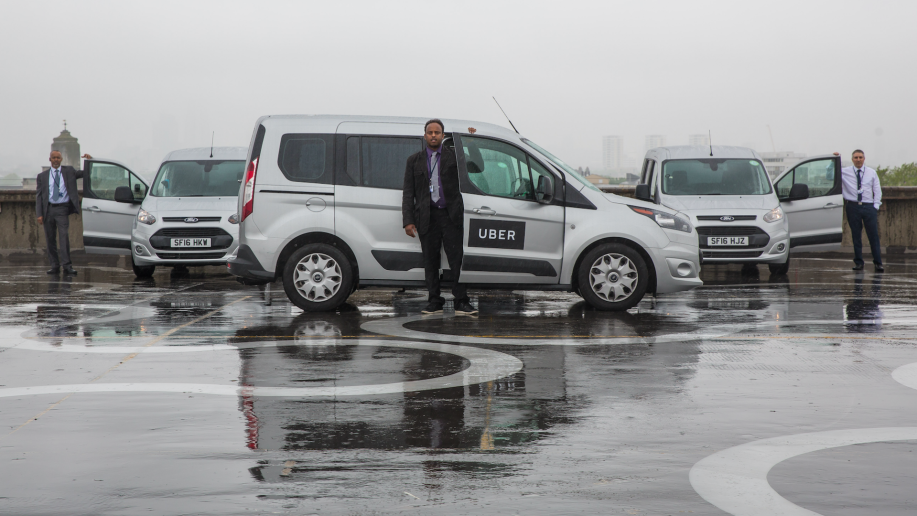Uber tests driverless cars
Pittsburgh trials of driverless cars could remove the need for car ownership, Uber hopes


Sign up today and you will receive a free copy of our Future Focus 2025 report - the leading guidance on AI, cybersecurity and other IT challenges as per 700+ senior executives
You are now subscribed
Your newsletter sign-up was successful
Uber is giving cab drivers another reason to dislike the ride-sharing app company: it is testing driverless cars.
Uber's Advanced Technology Centre (ATC) in Pittsburgh has kitted out a Ford Fusion with self-driving technology, such as radar, laser scanners and high-res cameras.
The cars will be tested across the US city, but will have a "trained" driver behind the wheel at all times.
"While Uber is still in the early days of our self-driving efforts, every day of testing leads to improvements," the company said in a blog post. "Right now we're focused on getting the technology right and ensuring it's safe for everyone on the road pedestrians, cyclists and other drivers."
Uber has faced backlash from cabbies in London and been accused of not paying its drivers enough, but the company appears to be targeting car ownership rather than taxis.
CEO Travis Kalanick has previously said Uber costs more than it could "because you're not just paying for the car - you're paying for the other dude in the car," he told the Code conference in 2014.
"When there's no other dude in the car, the cost of taking an Uber anywhere becomes cheaper than owning a vehicle," he added. "So the magic there is, you basically bring the cost below the cost of ownership for everybody, and then car ownership goes away."
Sign up today and you will receive a free copy of our Future Focus 2025 report - the leading guidance on AI, cybersecurity and other IT challenges as per 700+ senior executives
Driverless cars are not yet approved for public roads without someone behind the wheel, although governments in the UK and US appear keen to encourage the technology being tested on real streets - and Uber, rival Lyft and Google have teamed up to lobby regulators to accept the technology.
Here in Britain, the government hopes to have autonomous cars on the roads by 2020, but trials aren't expected to start until next year.
Freelance journalist Nicole Kobie first started writing for ITPro in 2007, with bylines in New Scientist, Wired, PC Pro and many more.
Nicole the author of a book about the history of technology, The Long History of the Future.
-
 UK government to fund regional tech programs up to £20m
UK government to fund regional tech programs up to £20mnews Local and regional partnerships invited to bid for support for established or developing projects
-
 Government’s ‘Humphrey’ AI tool helps local authorities cut costs
Government’s ‘Humphrey’ AI tool helps local authorities cut costsNews The Minute tool, part of the Humphrey AI assistant, is being trialled at 25 councils
-
 The UK government hopes AI will supercharge public sector digital transformation – IT leaders aren’t so sure
The UK government hopes AI will supercharge public sector digital transformation – IT leaders aren’t so sureNews Research from SolarWinds shows public sector transformation is progressing at a snail's pace despite IT leaders pushing for rapid improvements.
-
 Starmer bets big on AI to unlock public sector savings
Starmer bets big on AI to unlock public sector savingsNews AI adoption could be a major boon for the UK and save taxpayers billions, according to prime minister Keir Starmer.
-
 UK government targets ‘startup’ mindset in AI funding overhaul
UK government targets ‘startup’ mindset in AI funding overhaulNews Public sector AI funding will be overhauled in the UK in a bid to simplify processes and push more projects into development.
-
 UK government signs up Anthropic to improve public services
UK government signs up Anthropic to improve public servicesNews The UK government has signed a memorandum of understanding with Anthropic to explore how the company's Claude AI assistant could be used to improve access to public services.
-
 US government urged to overhaul outdated technology
US government urged to overhaul outdated technologyNews A review from the US Government Accountability Office (GAO) has found legacy technology and outdated IT systems are negatively impacting efficiency.
-
 Government urged to improve tech procurement practices
Government urged to improve tech procurement practicesNews The National Audit Office highlighted wasted money and a lack of progress on major digital transformation programmes


